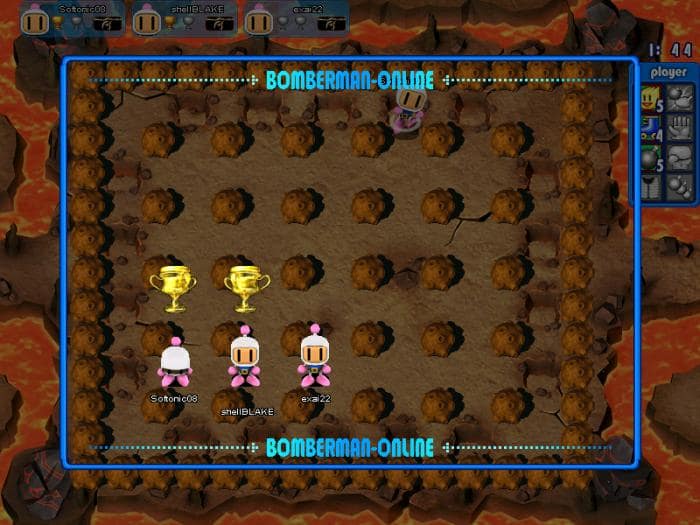Bomberman Lan Multiplayer

Mar 10, 2017 - A classic multiplayer game heads to the brand new Nintendo Switch. For your own Bomberman LAN tournament, which is about as wonderful.
Is as close as you can get to Bomberman while still being legally distinct, and Bomberman is always good. Free Bomberman with a big single-player mode, full online and local multiplayer is just grand. Developed by Victory Lap Games, it entered early access last year, and if you grab it by January 16th you get to keep it free forever. From the little bit I’ve played, it’s exactly what it looks like, albeit slightly marred by Xbox 360-era avatar styled characters. Still, you can do much worse for free. The full version launches on February 28th., and check out a trailer below.
Hopefully these are now less glitchy and thanks to a friend who made new GUIs a little prettier. Violin vst plugin free download.
If you’ve ever played a Bomberman game or similar before, there’s really no surprises to be found in Blast Zone! Except for possibly its zoomed out and incredibly messy 32-player mode. There’s also a 240-level solo campaign which runs the gamut of puzzle levels, hunting roaming targets, boss battles and bot-matches. Presentation-wise, it feels like the game is attempting to mimic Rocket League’s music, aesthetic and menus, although its bobble-headed avatars are a little gormless when viewed up close.
Fortunately you can dress them up in all manner of silly hats and masks, mitigating that flaw. Surprisingly, Blast Zone! Is probably your best bet for playing a round of Bomberman online on PC right now. Last year’s wasn’t a bad game, but it sank without a trace shortly after launch., there’s only a single very lonely bomber-person playing it at present. Never really got off the ground with its early access launch, but there’s, and hopefully there’ll be more if word of mouth spreads. I admit I’ve got a bit of an ulterior motive here, but if wanting more people to play Bomberman with is a crime, then throw me in jail. With my bombs.
Tournament is still in early access, and launches on February 28th. If you grab it between now and January 16th, you get to keep it forever. It’ll eventually cost money again, and was priced at £15.49/$16.79/$19.99 previously.
Network manager In order to build a multiplayer game in Unity we need an object with the Network Manager component. So, create an empty object in the Title Scene and add the Network Manager component to it. You can also add the Network Manager HUD component. This will show a simple HUD in the game that we can use to start multiplayer games. Later on we are going to create our own HUD buttons, but for now the Network Manager HUD will be enough. By now, you can try playing the game and it should show the Network Manager HUD in the title screen. The next step is making this NetworkManager to create the multiple players in the game.
Creating the players The NetworkManager component allows us to define what is the Player prefab in our game. This Player prefab will be created automatically by the manager every time a match starts. But before setting our Player prefab in the NetworkManager, we need to update some stuff in the Player prefab itself. A prefab can be instantiated by a NetworkManager only if it has a NetworkIdentity component attached to it. So, let’s add one to our Player prefab. Also, the Player object should be controlled by the local players and not by the server, so we need to check the Local Player Authority box.
Now, let’s test our game and see if multiple instances of the Player are being created. But first, I’m going to explain how multiplayer works in Unity. In Unity, there is no dedicated server for the matches. That’s because one of the players in a match acts as the server (besides being a client itself). The player that acts as both server and client is called a host in Unity. In order to play a multiplayer match, one of the players must start the match as the host, while the others join the match as clients. All game objects are replicated in all game instances (servers and clients), and all scripts are executed in all instances.